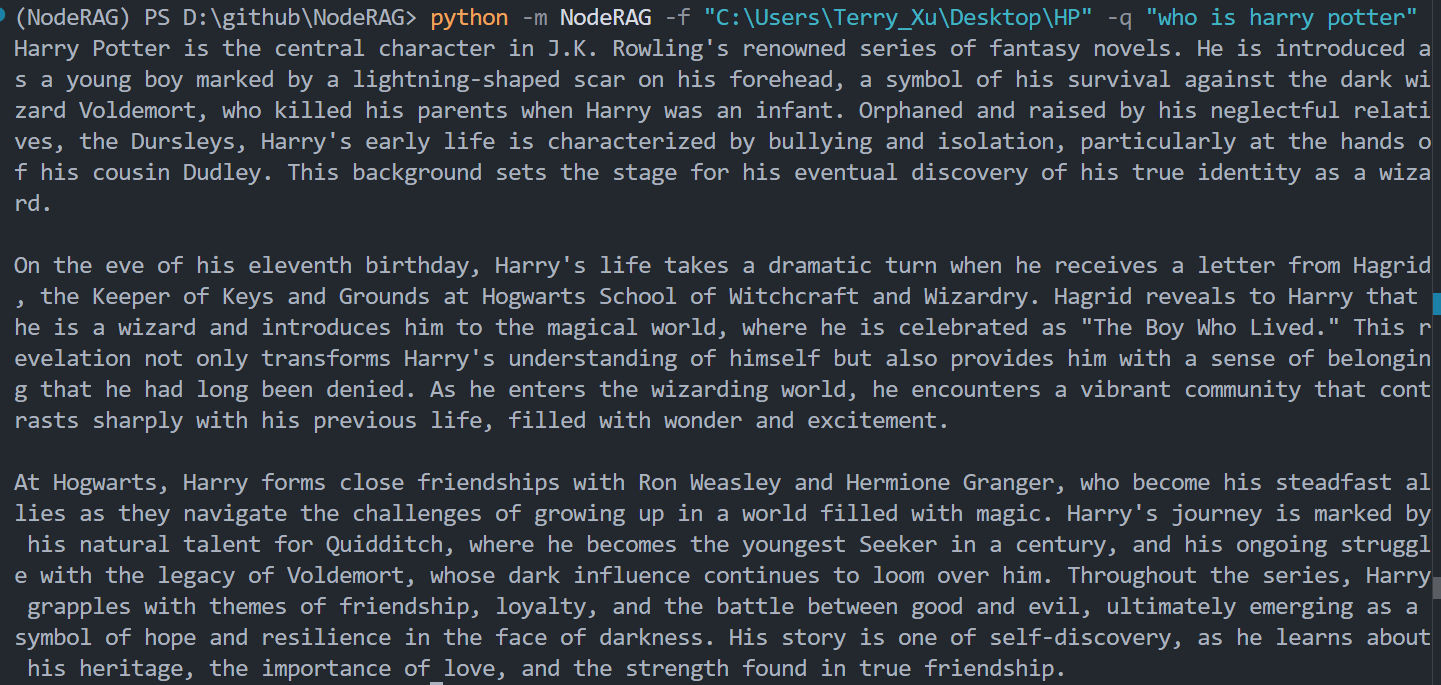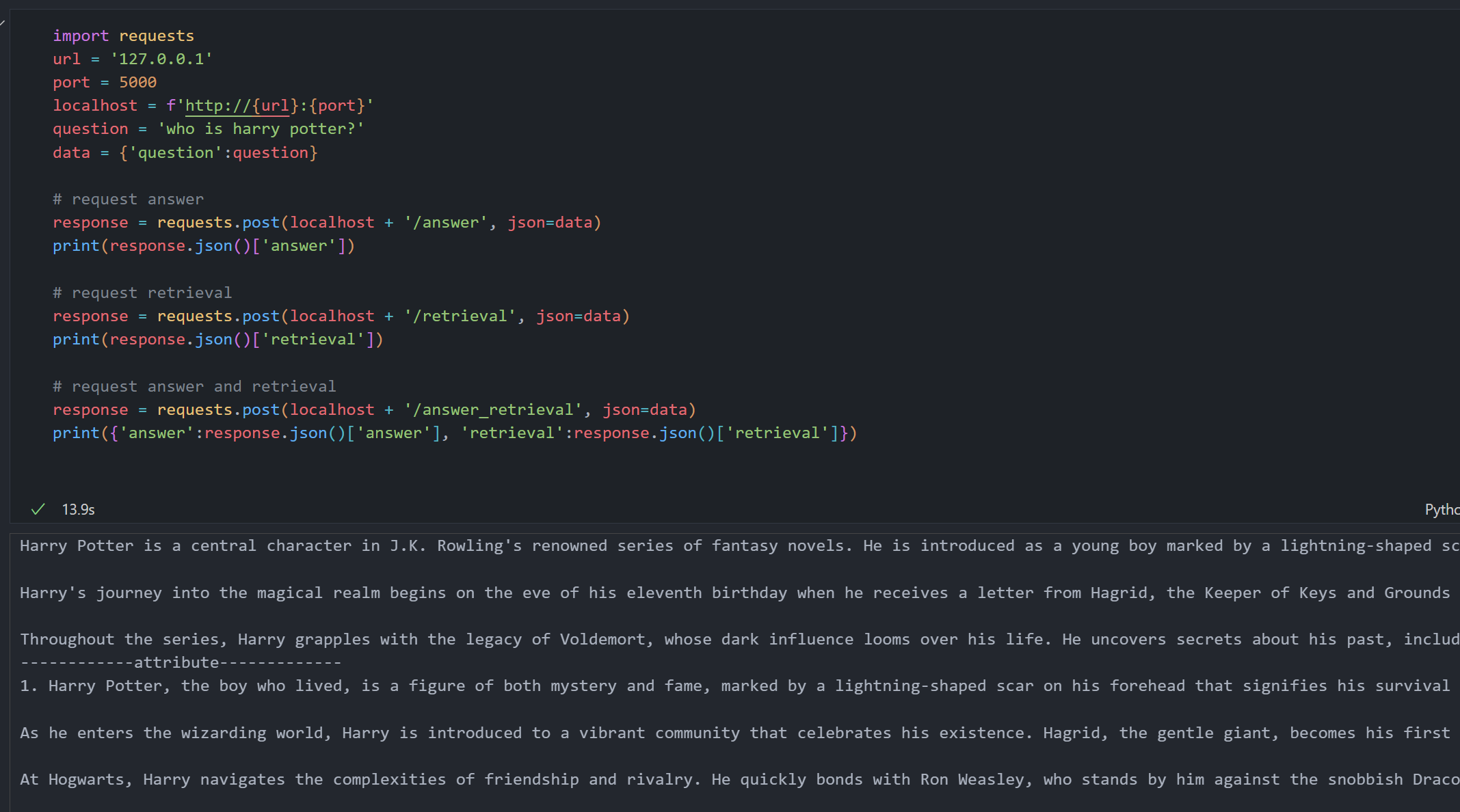localhost
2 minute read
Set Up API Client
Make sure you have already indexed your corpus, then start the API server with the following command:
python -m NodeRAG.search -f path/to/main_folder
This will launch a Flask-based API client.

You can modify the localhost address and port by updating config.url and config.port in your configuration file.
#==============================================================================
# Document Processing Configuration
#==============================================================================
config:
# Search Server Settings
url: '127.0.0.1' # Server URL for search service
port: 5000 # Server port number
Use in Terminal
After setting up the client, you can use NodeRAG directly from the command line. The request code is fully encapsulated for ease of use.
Basic Query
python -m NodeRAG -f path/to/main_folder -q "your question"
Return Answer with Retrieval Context
To retrieve related context, use the -r flag:
python -m NodeRAG -f path/to/main_folder -q "your question" -r
To retrieve both the answer and its associated context, use the -r -a flag:
python -m NodeRAG -f path/to/main_folder -q "your question" -r -a

Use in Python / Jupyter Notebook (Common way)
You can interact with the NodeRAG API using Python or within a Jupyter Notebook via HTTP requests. Below is a common usage example.
import requests
# Configure API endpoint
url = '127.0.0.1'
port = 5000
localhost = f'http://{url}:{port}'
question = 'who is harry potter?'
data = {'question': question}
# Request answer only
response = requests.post(localhost + '/answer', json=data)
print(response.json()['answer'])
# Request retrieval context only
response = requests.post(localhost + '/retrieval', json=data)
print(response.json()['retrieval'])
# Request both answer and retrieval context
response = requests.post(localhost + '/answer_retrieval', json=data)
result = response.json()
print({'answer': result['answer'], 'retrieval': result['retrieval']})
Explanation
POST /answer: Returns the generated answer to your query.POST /retrieval: Returns the relevant context retrieved from the corpus.POST /answer_retrieval: Returns both the answer and its associated context.
⚙️ Note: Ensure the API server is running before sending requests. You can configure the host and port in
Node_config.yamlviaconfig.urlandconfig.port.

Feedback
Was this page helpful?
Glad to hear it! Please tell us how we can improve.
Sorry to hear that. Please tell us how we can improve.